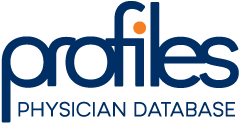Starting a new job as an advanced practitioner can be both exciting and anxiety-provoking. Each workplace comes with its own unique set of people, policies, and practice styles, requiring you to adapt quickly. Proper preparation is key to ensuring a smooth transition into your new role. Below are some practical tips that will help you ease into your new position and set yourself up for success in the physician recruitment industry.

Clarify Employer Expectations
A clear understanding of your new employer’s expectations is crucial to your success. Before your first day, make sure you have clarified what is expected of you in terms of performance and behavior. Key areas to focus on include:
Job Performance
- Patient Volume: How many patients are you expected to see daily? Are there any policies regarding double bookings or accommodating walk-ins?
- Autonomy Level: Will you be working autonomously, or will there be a supervising provider readily available for consultation?
- Documentation Policies: Is there an expectation for you to finish your charting in the clinic before leaving each day? Being aware of these specifics can help you better manage your time and responsibilities.
Ask About Your Predecessor
Understanding your predecessor’s role can provide valuable insight into the employer’s expectations. Ask why the previous Advanced Practitioner (AP) left and what challenges they faced. Knowing this can help you navigate potential pitfalls and better understand how to meet or exceed expectations. Moreover, ask to speak with current or former APs in the organization to gain insights into the work culture and clinic practices.
Administrative Issues
It’s essential to clarify the logistics of your role upfront, especially regarding:
- Scheduling
- Time Off
- CME Reimbursements
- Clinic Coverage
- On-Call Policies
These administrative details can directly impact your job satisfaction and work-life balance. Ensuring transparency in these areas helps avoid unpleasant surprises down the road, especially concerning on-call and clinic coverage for colleagues.
Consider Job Shadowing
Job shadowing can be invaluable when starting a new role. Spending a day shadowing your future colleagues allows you to observe the operation without the added pressure of handling an EMR or making clinical decisions. You’ll get to experience the clinic's workflow, staff personalities, and possible problem areas. This gives you a clearer understanding of the dynamics at play and helps build rapport with your team, ensuring a smoother first day.
Do a Legal Check-Up
Before starting a new job, ensure you are protected legally. This includes:
- Tail Coverage: Check if your former job's liability insurance includes tail coverage to protect you from litigation after you've left. If not, you may need to purchase additional coverage.
- Licensing Requirements: Review your state’s licensing requirements to ensure proper termination of any supervisory relationships and registration of new supervising providers, if applicable. Overlooking this could lead to legal complications down the line.
*Originally posted on 5/26/2020. Last updated on 9/30/2024.
